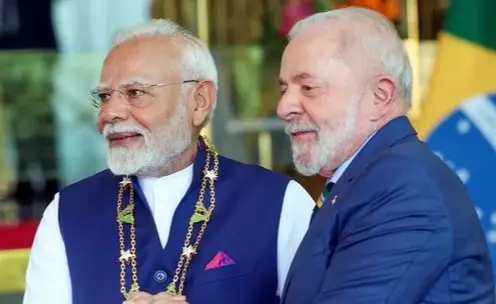
Passing ‘bulldozer order’ was my most important one: CJI Gavai
As the Chief Justice of India (CJI) BR Gavai prepares to retire on November 23, he has reflected on his tenure and highlighted one judgment that stands out to him as the most important. In a recent statement, CJI Gavai revealed that his judgment against “bulldozer justice” was the most significant one he has delivered during his time as the head of the Indian judiciary. This statement is noteworthy, as it underscores the importance of upholding the rule of law and protecting the rights of citizens, even in the face of alleged wrongdoing.
For those who may be unfamiliar with the term, “bulldozer justice” refers to the practice of demolishing the homes of individuals who have been accused or convicted of crimes, often without due process or adequate notice. This approach has been criticized for being heavy-handed and violating the fundamental rights of citizens, including the right to shelter and the right to a fair trial. CJI Gavai’s judgment against this practice is a significant milestone in the ongoing effort to promote justice and uphold the rule of law in India.
During his tenure as CJI, Justice Gavai has been a strong advocate for the protection of human rights and the promotion of social justice. His judgment against “bulldozer justice” is a testament to his commitment to these values and his determination to ensure that the judiciary plays a proactive role in safeguarding the rights of citizens. As he noted in a recent statement, “How can a house be demolished just because a person is accused of a crime or convicted of it?” This question gets to the heart of the issue, highlighting the need for a more nuanced and balanced approach to justice, one that takes into account the complexities of each case and the potential consequences of demolishing a person’s home.
The implications of CJI Gavai’s judgment are far-reaching, and they have the potential to impact the lives of thousands of people across India. By ruling against “bulldozer justice,” the CJI has sent a clear message that the judiciary will not tolerate arbitrary or excessive actions by the state, and that the rights of citizens will be protected and upheld. This is a significant development, as it helps to promote trust and confidence in the judiciary, and it underscores the importance of the rule of law in promoting social justice and human rights.
As CJI Gavai prepares to retire, he can look back on his tenure with pride, knowing that he has made a lasting impact on the Indian judiciary and the lives of countless citizens. His judgment against “bulldozer justice” will be remembered as a landmark decision, one that has helped to promote justice, equality, and human rights in India. As he passes the baton to his successor, CJI-designate Justice Surya Kant, who will take office on November 24, CJI Gavai can be confident that his legacy will endure and that the judiciary will continue to play a vital role in promoting the values of justice, equality, and human rights.
The retirement of CJI Gavai marks the end of an era, but it also presents an opportunity for the judiciary to reflect on its role and responsibilities in promoting justice and upholding the rule of law. As the Indian judiciary looks to the future, it is clear that there will be many challenges ahead, from promoting social justice and human rights to addressing the complex issues of the 21st century. However, with leaders like CJI Gavai and CJI-designate Justice Surya Kant at the helm, there is reason to be optimistic about the future of the judiciary and its ability to promote justice, equality, and human rights in India.
In conclusion, CJI Gavai’s judgment against “bulldozer justice” is a significant milestone in the ongoing effort to promote justice and uphold the rule of law in India. His commitment to protecting human rights and promoting social justice has been a hallmark of his tenure, and his legacy will continue to inspire and guide the judiciary in the years to come. As we look to the future, it is clear that the judiciary will play a vital role in promoting the values of justice, equality, and human rights, and that leaders like CJI Gavai and CJI-designate Justice Surya Kant will be at the forefront of this effort.






